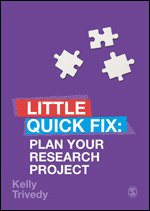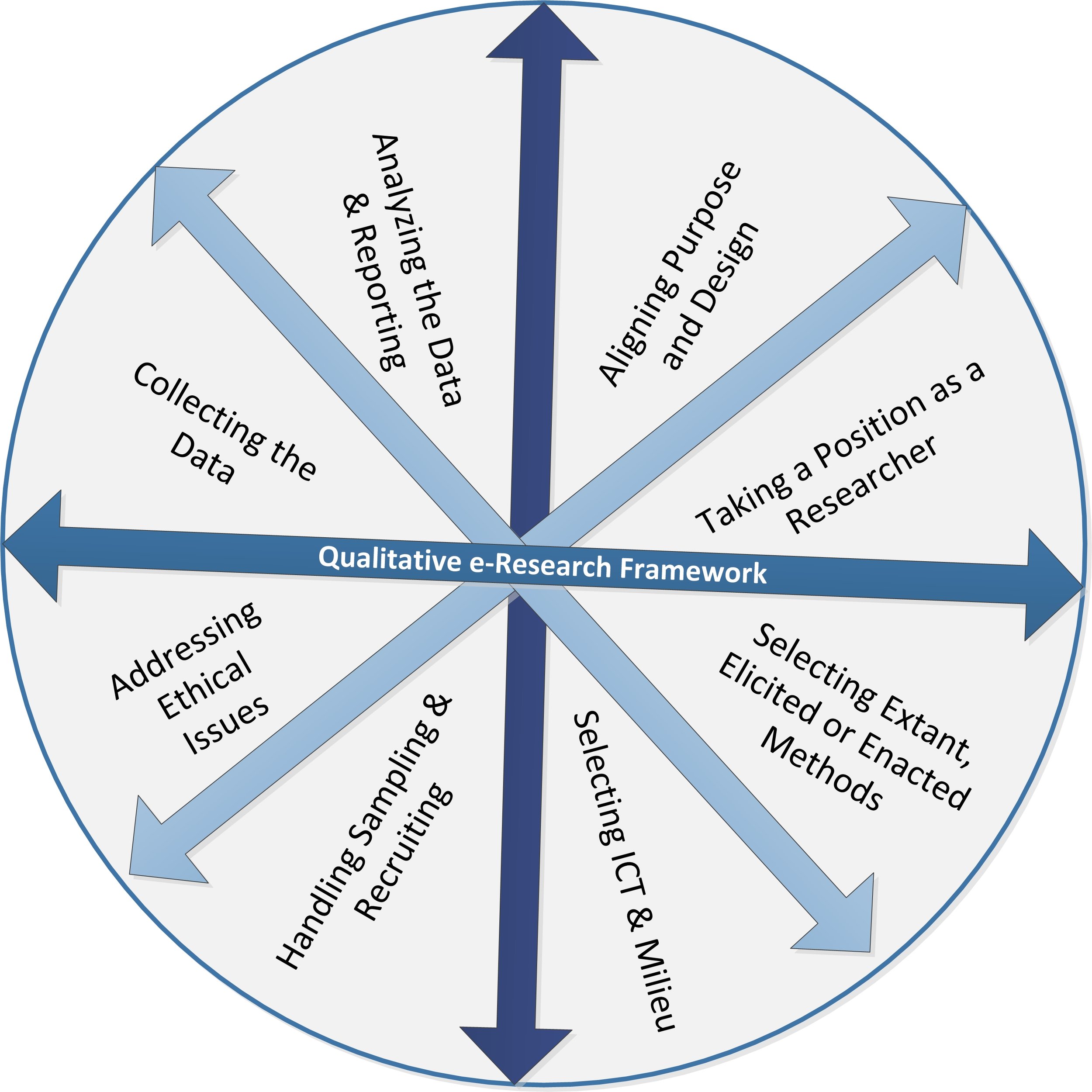Digital Tools for Research
by Kelly Trivedy (LLB, MA, PGDE, SFHEA). Independent Academic Consultant, Author and Podcaster for Talking CriticalEd. She is the author of the Sage book Plan Your Research Project, See this interview with Kelly and learn more at https://kellytrivedy.co.uk/
Throughout your research journey, leveraging digital tools can be advantageous, aiding you from initial planning to final presentation. Whether you lean towards paper-based methods or embrace a hybrid approach combining both digital and traditional tools, this blog post offers insights to help you explore and experiment with new tools effectively!
Purposive decisions
The abundance of digital tools can be overwhelming, ranging from web-based platforms to downloadable applications, with both paid and free options available. Before delving into researching various tools, it's beneficial to clarify why a particular tool would be useful and how you intend to utilise it. For instance, if you're seeking a tool to organise your research ideas in the project's early stages, you might prefer a visual representation, such as an online mind-mapping tool. Take into account the broader components of your research project, such as literature review, data collection, and analysis, and identify areas where certain tools could be beneficial.
Research the tool
Once you have an idea of what you need from a tool, you can begin exploring. Below is a snapshot of pages 62-63 of my book ‘Plan Your Research Project.’ Use this as a guideline to help you evaluate the tools.
My Digital Tool recommendations
In addition to the tools I mention in my book I've provided further applications and programs with free pricing options, along with summaries outlining potential usage scenarios below.
An exercise from Plan Your Research Project.
Notion – this tool holds significant value for me. It provides a customisable space where you can encompass every aspect of your research project, from managing time for task completion to the final write-up. Notion also facilitates integration with numerous applications and templates, with the list continually expanding. What makes Notion remarkable is its compatibility across all your devices, enabling you to add information effortlessly while on the move.
Elink.io – an excellent visual tool for bookmarking, designing posts, managing RSS feeds, and automation. If you're engaged in a long and/or extensive research project and wish to share specific aspects, including links, at conferences or online networking events, this tool can assist you in creating pages tailored for such purposes.
Canva – an excellent tool for creating visuals. Whether you have an upcoming presentation or a brief paper session, Canva offers numerous free templates that you can easily customise to suit your needs. You can download it in many formats ranging from PNG to PDF.
Matter – if, like myself, you frequently encounter relevant articles on LinkedIn or while reading on the go, and require a convenient place to save them for later reading, this application is perfect. Additionally, you can integrate the app as a plug-in to your browser for added convenience.
Scispace – this tool is excellent for the initial information-gathering stage, but it should complement rather than replace your institution's databases. It assists in obtaining summaries of existing research, enabling you to determine whether to download and read the full paper. Additionally, you can conduct quick searches to gain insights into current perspectives on the topic area.
This is by no means an exhaustive list but one which can inspire you to explore before making a firm decision on what tools work best for you.
Build systems
Embarking on a research journey can be a transformative experience, and having the right tools at your disposal can facilitate the development of efficient working systems. Tasks like automating the creation of 'read later' lists can significantly save time. Utilising tools to assist you is crucial in enabling you to focus on the content without being burdened by unnecessary procedural concerns. Although setting up these systems may require some initial effort, in the longer term, you'll appreciate the time and energy saved.
I am not a fan of digital, what can I do?
It's not necessary to adore every app or program you use. Making informed decisions is paramount. The efficiency a tool offers in terms of time may justify its use. If you prefer handwritten notes and have a system that suits you, there's no need to abandon it. You can still maintain this practice. Additionally, you can replicate the tactile experience of handwriting by investing in an iPad pencil or a remarkable tablet. Alternatively, if you already own an iPad, you can purchase screen covers that provide a paper-like texture.
Make a Pros and Cons list
Taking a step back and checking in with the tools you are using can be a powerful way of eliminating the tools that do not align with your objectives:
In the end, it comes down to determining what fits best with your needs and preferences. Balancing life, work, and research presents its own set of challenges, but implementing effective tools can streamline processes, potentially freeing up time for activities beyond the realms of work and research that bring you joy.
What if I decide to change my mind?
As with any tool, there may come a time when it no longer serves your needs, particularly if your project spans an extended period or if you take a research break. It's essential to revisit the purpose behind using the tool. If there's an opportunity to transition from a basic version to a more advanced one or to switch to a different tool altogether, consider making the upgrade. Additionally, ensure you back up all existing resources to prevent any loss of work.
I want to know more about digital tools
My book ‘Plan your Research Project’ offers more tips and guidance to support each stage of your research journey. I have a chapter dedicated to digital tools where I discuss further tools to support you.
I have also written an online campus course with Sage ‘Plan your Project’ which may be available via your institution.




































Do you think about research questions as an insider, outsider, or somewhere in between? Why is positionality important in online research?